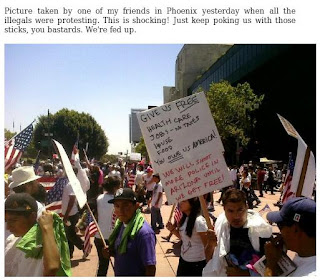Jonah Goldberg is right on one important count. Liberals (along with most human beings, though he doesn't point that out) tend to use ideological labels without any real clarity about what they mean, simply as pejoratives. The one thing that seems to never change is the bipolar nature of our politics. Republicans may shift from being the party of "America First" (meaning, in the late 30s and very early 40s, "Leave Hitler and the problems of Europe alone) to being the most hawkish and interventionist party, ever since some time around 1950. Democrats may go from being the party of states rights to being the most prone to promote federal projects and universal national social policies.
It is as old as our nation. John C. Calhoun made a radical switch from national centralist to the most extreme of states righters as abolitionism began to grow in the North.
Goldberg declares in his introduction "Angry left-wingers shout that all those to their right ... are fascists. Meanwhile besieged conservatives sit dumbfounded by the nastiness of the slander." He then writes a 487 page specious argument to "prove" that everyone to his
left is a fascist.
The book is published in 2007 when the idea of "besieged conservatives" dumbfounded by nastiness seemed and still seems comically inappropriate. To me, it appears that movement conservatives have mined the history of the left in America for tactics, both to scold the left for using them (even if it was mostly decades ago)
and to make energetic use of them for the right. For example, the victimhood pose - those poor innocent besieged and dumbfounded conservatives.
The
Mises Review of the Ludwig von Mises Institute is surely
more hostile to government interventionism (which is almost synonymous with "fascism" as Goldberg used the word). But they do seem to have higher standards of intellectual rigour.
Their review, at
http://mises.org/misesreview_detail.aspx?control=326
starts with "Jonah Goldberg has ruined what could have been a valuable book" and concludes "Although
Liberal Fascism contains much important information, its many mistakes require that it be used with extreme caution. Jonah Goldberg should acquire a more accurate knowledge of history before he presumes to instruct others." (after several specific examples of what the reviewer calls "howlers").
Goldberg has stretched the word "fascist" so it seems to include any vision of nationwide improvement that might involve the government. For consistency he should probably include public education as a fascist institution, but since the belief in public education isn't limited to liberals that would be inconvenient. He does however give broad hints that vegetarianism and movements against cruelty to animals might be fascist -- at least they were favored by certain Nazis.
No wonder he can speak of "smiley face" fascism, and put a cute smiley button on the cover with a Hitler moustache. He seems not to understand what has made fascism (and Nazism and Stalinism which he coyly stays away from) seem like an abomination to most people. The fact that some liberals have also been too loose in their use of words like "fascist" should not excuse this.
I should make it clear that I am
not in the business of determining
the true definition of fascism, or
essence of fascism. We tend (due, I think, to the structure of our minds) to think that where there is a word, there must be a
true meaning of that word. This does not serve us well in the overwhelmingly complex and open-ended world that we live in.
At least if we want to understand what people are saying, we have to accept, for the moment at least, what
they mean by words they use -- even, perhaps, how they use a word in a particular context. When the Marines are "looking for a few good men", they don't mean five or six.
Ultimately, if there is any point in talking about, or listening to someone talk about Fascism, aside from trying to describe and analyze some historical events, then we must try to understand what they mean by it. I said "
talking about, or listening" but in fact I seen no reason to
talk about fascism, because it means too many different things to too many people. And when I hear someone else talking about Fascism, I at best take it with a grain of salt, as their definition of, or more likely their
associations with the word are likely to be fuzzy, so generally the use of the word "Fascist" makes me doubt the clarity of the speaker's thinking, or worse, makes me suspect the speaker just uses labels to paint somebody else's philosophy or actions as evil.
What you will do, by calling someone or something Fascist, if the namecalling sticks, is to associate the person or entity with
whatever the listener thinks of as fascism". In that spirit, I would like to explore the "meanings" of fascism in the people's minds.
What Goldberg does, basically, is to give "Fascism" a much broader meaning that what people think of when they hear the word, then announce that
liberals are fascists, without any attempt to change what people think of when they hear the word.
I want to examine the qualities of fascism neglected by Goldberg, but which will affect what people hear when they hear that "
Liberals are Fascists". Maybe few people can articulate these qualities (which is why Goldberg's book is effective) but if they were to analyze all the impressions they have gotten from books and movies, these things would show up
- Ideological absolutism:
- National or Racial Exclusivity: and a messianic sense of the nation's mission or fate which excludes, or may include the conquering /exterminating of other states, ethnicities, classes, or other excluded groupings.



